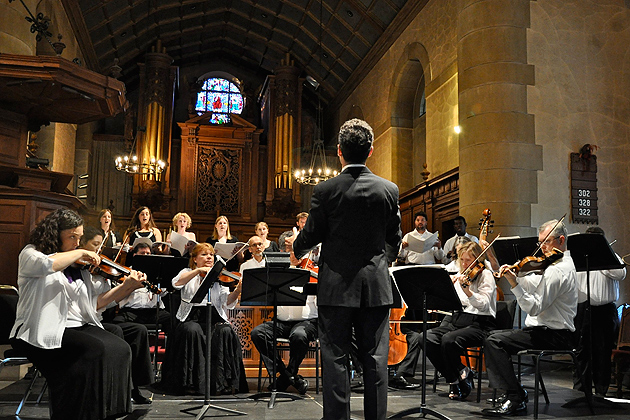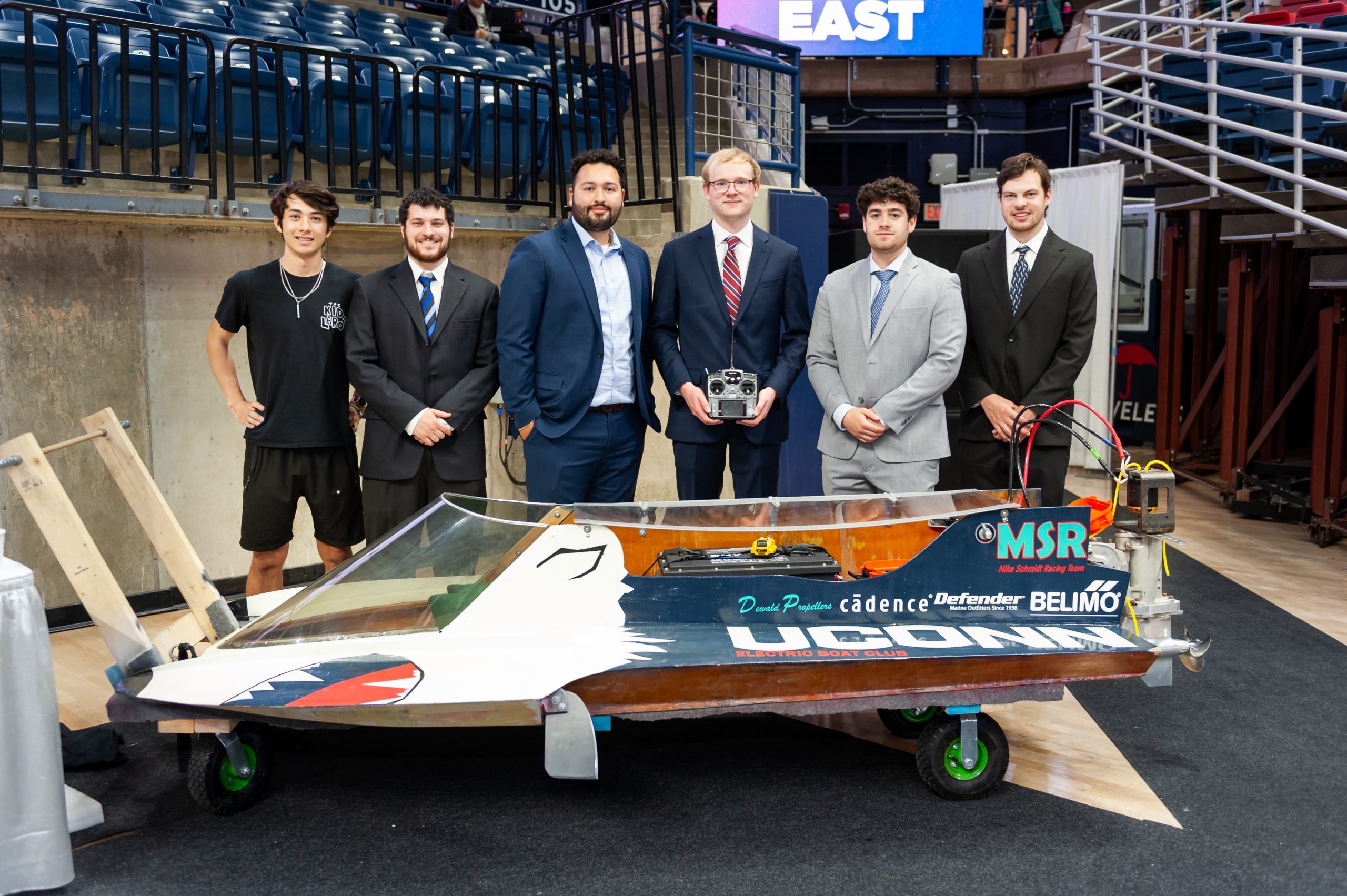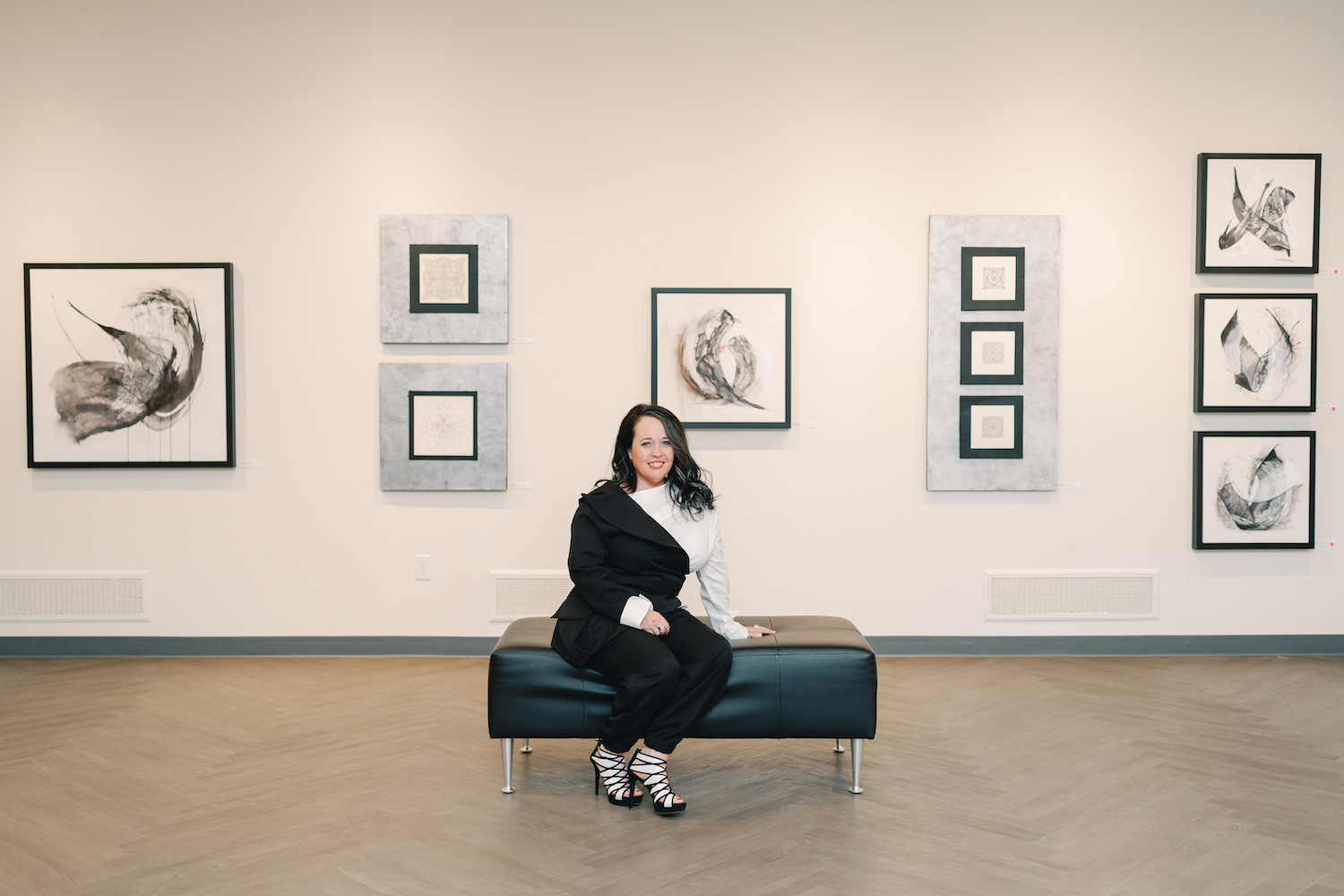
In a world with digital downloads, YouTube videos, and the ability to record music using a laptop computer, many people may not realize that until the development of sound recording in the late 19th century, the only way for large audiences to hear music was to be present during a concert performance in a music hall, church, or private home.
As artistic director for the Connecticut Early Music Festival, UConn music historian Eric Rice is using his scholarly research as the basis to organize and produce a New London-based concert series that focuses on a repertoire of music written and performed before 1800, ranging from Gregorian chants to the music of Bach, Mozart, and Beethoven.
This year’s 30th Connecticut Early Music Festival includes baroque music based on Old Testament texts, chamber music played and collected by Thomas Jefferson, and works by South American composers as well as Beethoven and Mozart.

“[This year,] I decided to think about the relationship with New England and Western Europe,” says Rice, associate professor of music history in the School of Fine Arts, who also oversees graduate programs in music. “It got me thinking about what kind of composers someone like Thomas Jefferson would listen to and what people in New England would hear.”
An important aspect of performing early music is having an understanding of how advances in the construction of musical instruments, performance technique, and the size and positioning of the musicians in an ensemble have changed the way a composition might be heard today compared with its original articulation, Rice says.
“The way that you held a bow when you played a violin in 1700 is different than in 1850,” he explains. “It’s got a different bow and different strings; there is no chin rest on a baroque violin, and the strings are made of gut instead of steel.”
Pianos have changed even more, he notes: “Probably no other instrument in western classical music has undergone more changes than the piano. In the 1820s, pianos still had a wooden frame. By the 1880s they had iron frames, meaning they had strings with greater tension to sustain the sound much louder.”
Another important factor is the number of instruments that make up an early music ensemble or orchestra, compared with today’s modern symphony orchestras, Rice says. In the 18th century, there were fewer musicians in an orchestra, which affect not only the volume of sound heard, but the performances of the musicians and vocalists.
“A singer has to work differently,” he says. “They don’t have to work as hard to sing over the orchestra. In my mind, it affects the subtlety of the performance. Others may disagree. The vocal techniques in use today are done in a way to get over the sound of the orchestra.”
Rice learns such details about the writing and performance of early music through his scholarship of music history. This includes looking at archival records to discover how many people were paid to perform, reading diaries of the time, and finding critical reviews of concerts in old newspapers.
“[As artistic director for the Festival,] I view my role as part performer, part scholar, and part curator,” Rice says. “My job is to assemble a group of concerts that have broad appeal and scan a wide range. I might be involved in one or two [as a performer], but the rest is contracting with other ensembles to come in with a well-rehearsed performance.”
Rice says that his love of medieval and Renaissance music, especially liturgical music, drew him to become an advocate of early music. His scholarly research in this area focuses primarily on the music’s relationship to architecture, politics, and secular music. His writings have appeared in the scholarly journals Current Musicology and the Journal of Musicological Research, among others. His most recent book is Music and Ritual at Charlemagne’s Marienkirche in Aachen (Merseburger Verlag, 2009). He founded the Hartford-based Ensemble Origo in 2011 to continue performing music related to his research.
“We have kind of an interesting situation comparing music to other arts,” Rice says. “When you walk into the Wadsworth Athenaeum or the Metropolitan Museum of Art, you’ll see art from all periods and feel that these works belong in a museum. For a long time, that was not the case for music. People did not think baroque or classical music were accessible. It’s always seemed curious to me that people think Cervantes or Shakespeare are great and are willing to spend time to read their works or to look at paintings, but not willing to listen to music from that period.”
Suzanne Bona ’85 (SFA), host of the nationally syndicated radio program Sunday Baroque, which focuses on baroque music from 1600 to 1750, says public appetite for early music in the northeastern part of the United States continues to grow.
“It’s definitely a hotbed for baroque, because there are so many fine music schools and venues to hear the music,” says Bona, who launched her program at WSHU-FM in Connecticut, a National Public Radio affiliate, 25 years ago.
Bona notes that she and Rice take a similar approach to presenting early music to their respective audiences.
“There’s this wonderful historic component,” she says. “I think we appreciate good stories and having that kind of context. When you put this music into historical context, tell the stories, and bring this rich narrative, it’s fascinating. It’s very much the way we listen to music today. We like the good story, to be able to sing along. It’s wonderful to know my alma mater has someone of his caliber doing this.”
Rice says his goal with the Connecticut Early Music Festival is to have audiences open their mind to the music.
“To me there’s nothing more powerful than a piece of music,” he says. “It’s probably the best way to understand a culture. It’s like instant access or a window to a culture of that particular time and place. It’s one of the most powerful media from the past.”
Upcoming concerts at the Connecticut Early Music Festival include the Spanish ensemble Le Tendre Amour performing “A Journey Through Ancient Scripture: Baroque Settings of the Old Testament in Northern Europe” on June 22 at Connecticut College’s Harkness Chapel; and Mozart’s opera “Die Entfuehrung Aus Dem Serail” on June 23 at the Cummings Arts Center, also at Connecticut College.
For more information, go to http://ctearlymusic.org


